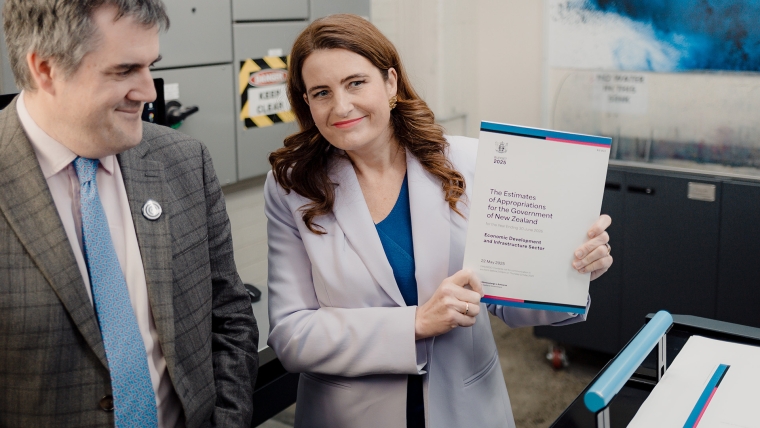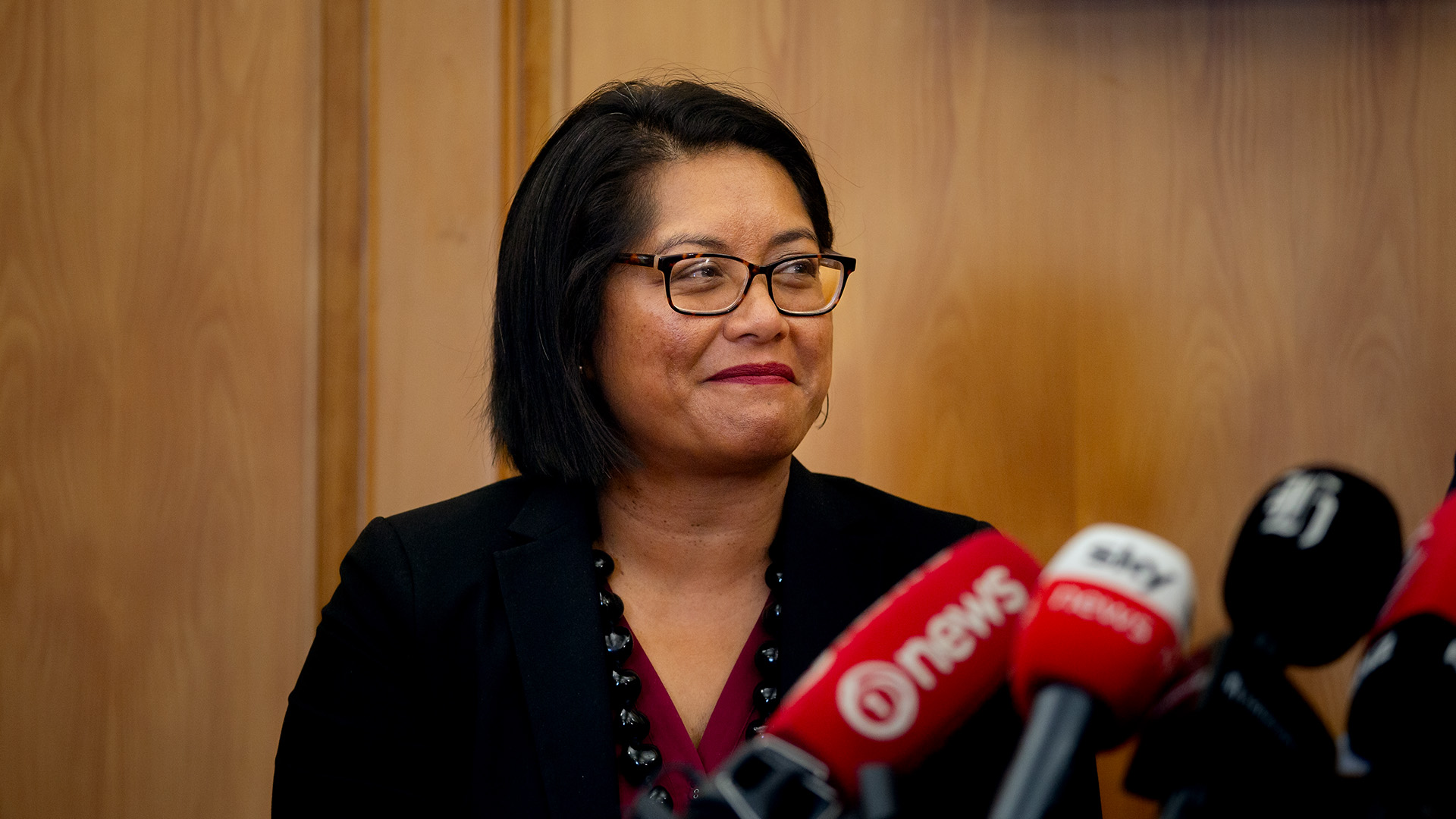
Labour finance spokesperson Barbara Edmonds says she is willing to help Nicola Willis revive plans for an election policy costing unit, after the proposal was blocked by Act and New Zealand First.
Willis had suggested amending the Public Service Act to give political parties access to limited public resources in the 10 months before an election, but Cabinet rejected the idea on Monday.
“This is yet another example of National caving to its coalition partners instead of doing what’s right for New Zealanders,” Edmonds said in an email to Interest.co.nz.
“I have a member's bill ready to establish an independent costing unit because Kiwis deserve honest, transparent debates about election promises. If the Minister is serious about getting this done, she could reach out to us.
Willis said she wouldn’t reach out to Edmonds as the members’ bill proposed establishing a new government agency which would duplicate the Treasury and Auditor General’s work.
“Yet again, Labour’s first instinct is to employ more bureaucrats,” she wrote in an email.
“The approach I proposed was to largely use existing resources to help political parties cost their policies in the lead-up to elections, but it is not appropriate to proceed with it without broad cross-party support.”
Willis promised to establish an independent policy costing unit during the 2023 campaign, after watching repeated policy debates collapse into arguments over “fiscal holes”.
National MP Steven Joyce popularised the term in 2017 when he accused Labour of being $11.7 billion short in its fiscal plan. He argued the party had failed to allow for routine spending increases—though experts disagreed.
The phrase appears 87 times in Parliamentary debates, first recorded in 2004 when Michael Cullen defended the Super Fund, saying those who wanted it abolished had to explain how they would fill the “fiscal hole” left behind.
Recent holes of various sizes
Fiscal holes dominated the 2023 election. NZ First leader Winston Peters claimed Labour faced a $20 billion revenue shortfall, which the Act Party misleadingly recalculated as $27 billion.
Willis echoed claims that weakening economic forecasts would force Labour to borrow more, though she avoided using the more fanciful figures. That led to her infamous question to then-Finance Minister Grant Robertson: “How big is his hole?”
But it wasn’t long before she faced a fiscal hole of her own. A group of economists estimated National’s tax proposal would raise just $268 million a year—far short of the $740 million claimed.
Once in Government, Willis relied on a different mix of taxes and spending cuts to cover the cost of the income tax cuts she had pledged would be fully funded.
There were other alleged fiscal holes that year too, including National’s Three Waters replacement and Labour’s GST-off-fruit-and-veg “boondoggle” policy.
Fights over fiscal holes have often derailed public debate, shifting focus from the substance of policies to whether cost estimates were precise enough.
Another concern, raised by the OECD, was that unaffordable promises made during election campaigns could pressure newly elected governments to abandon fiscal targets.
“Inaccuracies in the cost of the major political party proposals risk sub-optimal policy and further slippage, especially as these costings are presently often provided by consultants who do not always have access to all the necessary fiscal information,” it said.
The OECD said an independent fiscal institution, like those used in some other parliaments, could help shift debate from the accuracy of estimates to the merits of the policies themselves.

Off the cards
These experiences convinced Willis that some form of costing unit should be in place before the 2026 election, and some funding was allocated in Budget 2025.
Various proposals have been floated for its scope and structure, but Willis asked Cabinet to establish the unit within the Public Service Commission with a $1.2 million budget.
Under the plan, the unit would field requests from parties and direct them to relevant agencies, whose staff would then prepare cost estimates for campaign policies. The process would resemble what parties already do during post-election coalition talks.
Willis told the NZ Herald she believed an independent costings unit would improve political debate, but Cabinet had decided the risks outweighed the benefits.
Act Party leader David Seymour told the paper the idea could put the public service in a compromised position during election campaigns. It would effectively be refereeing a contest designed to hold it accountable, and could be incentivised to skew the debate.
He also rejected the idea that official costings would outperform private ones, citing recent issues with modelling for the FamilyBoost policy.
Another risk raised during the Cabinet process was that election ideas could be leaked—either publicly or to government ministers—and would be subject to Official Information Act requests.
12 Comments
A mathematician, a Statistician and an Accountant are in for a job interview. [Joke]
The interviewer calls in the mathematician first, the interview goes well and for the last question the interviewer asks, "What does two plus two equal?"
The mathematician replies, "Four."
The interviewer says great and then calls in the statistician, and after another good interview he asks the same question, "What does two plus two equal?"
The statistician says, "With such a small sample size the answer is four give or take point three percent, but on 9 times out of 10 the answer will be four.”
Satisfied, the interviewer then calls in the accountant and at the end of the interview poses the same question, "What does two plus two equal?"
Very suddenly the accountant gets up, locks the door, closes the shades, disconnects the phone, then approaches the interviewer and asks, "What do you want it to be?"
Reminded me of this one, which even has its own Wikipedia page
The issue aside, it would be refreshing to see Nat & Lab getting some stuff done together and not always opposing for the sake of politics.
The minor parties don't have to run the show.
Exactly and well overdue on the troubling future of NZ Super/Pensions etc. Get an efficient panel of neutral experts to design it, reach a bi-partisan agreement on it and vote it in by a large majority. That makes the minor parties, if they so choose, irrelevant and if it needs to, the electorate can blame each side just as much and however it likes.
Yes, no good kicking the can down the road forever.
But who is credibly independent in a small country where most professional groups are intellectually or financially beholden to government, everything runs on cosy arrangements, and the public trust in local institutions is fast draining away?
The Swedish Auditor's Office? Seriously: they do international work. https://www.riksrevisionen.se/en/international-engagement.html
Act didn't want any chance of real costings. Why am I not surprised
Their point about the potential for compromised advice from those doing the costings is valid, though - how do we get credible independence when public trust in institutions is diminishing?
It is kind of a microcosm of the differences of approach between the two main parties, even in the unicorn moment of agreement on an idea.
One wants to direct work to existing government departments who may, or may not, be able to cope. The other wants to create a new unit to do the work, which expands the public service - but neither assures independence. A service that is genuinely independent of government, the public service, academia, the legal profession and other local groups with vested interests in the answer.
I would suggest the Swedish auditor's office, given our professional pools are so small and beholden to government.
Can't see this being a bad thing. Putting numbers on the lies of the Pollys. Cross house support is Democracy at work.
Why Act and NZ First would be against this is a question.
We have had an unbroken stream of Labour or National led governments for the past 90 years, and are quite likely to continue so for decades. These two political parties share the ability to make or break a civil servant's future.
Act and NZ First will not be leading the country, neither will Greens or TPM.
And currently with many unhappy with the current coalition, this leaves the country ripe for opportunity for visionary, reasoned parties to form with a long term plan for the children of tomorrow vs the majority of politicians in house currently, who seem to only look to the next 3 years.

We welcome your comments below. If you are not already registered, please register to comment
Remember we welcome robust, respectful and insightful debate. We don't welcome abusive or defamatory comments and will de-register those repeatedly making such comments. Our current comment policy is here.